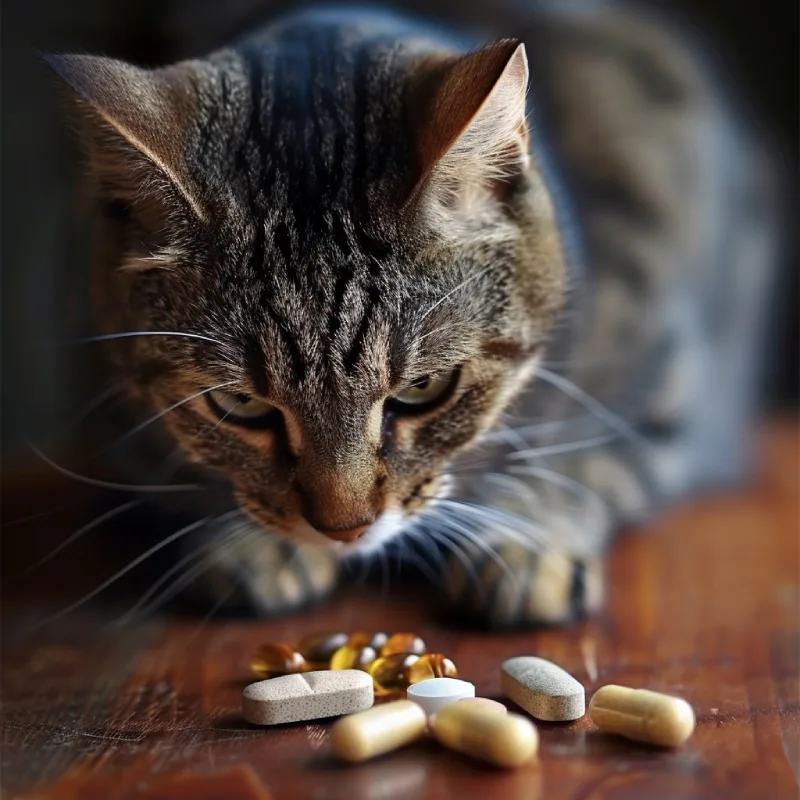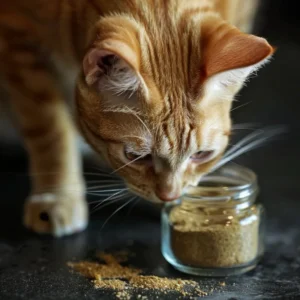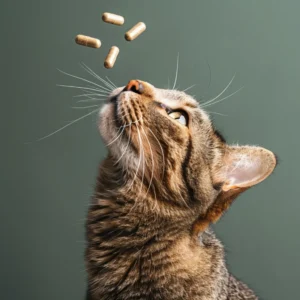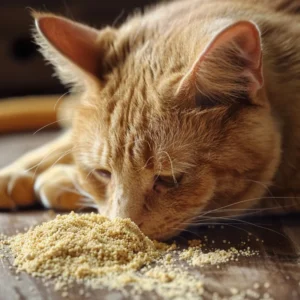Introduction to Feline Dietary Supplements
Introduction
Dietary supplements can play a crucial role in the health and well-being of cats. By providing essential nutrients that may not be sufficiently available in their regular diet, these supplements help maintain optimal health, prevent deficiencies, and support overall vitality.
Types of Supplements
Cats require a range of nutrients to live healthy lives, but they are especially dependent on certain vitamins and minerals that support their unique physiology:
- Vitamins: These are vital for immune system function, skin health, and nerve function. Key vitamins include:
- Vitamin A – essential for vision and skin health.
- Vitamin D – aids in the regulation of calcium and phosphorus, promoting healthy bones.
- Vitamin E – acts as an antioxidant, helping to protect cells from damage.
- Minerals: These contribute to the structural components of the body, among other functions. Important minerals include:
- Calcium – crucial for bone development and nerve function.
- Phosphorus – works in conjunction with calcium to enhance bone health.
- Magnesium – important for protein synthesis and muscle and nerve function.
- Other Essential Nutrients:
- Omega-3 Fatty Acids – support skin, coat health, and cognitive function.
- Taurine – an amino acid that is critical for heart health and vision.
These nutrients are crucial for maintaining a balanced diet and can be found in various commercially available supplements specifically formulated for cats. For detailed information on each nutrient’s role, consider reading this comprehensive guide.
Benefits of Dietary Supplements
Supplementing your cat’s diet has several benefits, particularly for certain life stages or health conditions:
- Support during growth and aging: Kittens and senior cats have different nutritional needs compared to adult cats. Supplements can help meet these specific requirements.
- Health condition management: For cats with health issues such as kidney disease or arthritis, specific supplements like glucosamine or omega-3 fatty acids can provide significant benefits.
- Preventive health: Regular use of supplements can prevent deficiencies and support long-term health, potentially reducing future veterinary costs.
For an in-depth exploration of how these supplements aid in managing common feline health issues, see this article.
By understanding the types and benefits of supplements, cat owners can make informed decisions to enhance their pets’ health and quality of life.
Choosing and Using Supplements
How to Choose the Right Supplement
Choosing the right dietary supplement for your cat involves several factors to ensure the best support for their health needs:
- Age: Kittens, adults, and senior cats have different nutritional needs. For example, kittens may benefit from DHA for brain development, while seniors might need more glucosamine for joint health.
- Health Status: Cats with health conditions such as kidney disease or obesity might require specialized supplements. Consult a veterinarian to understand which nutrients could help manage these conditions.
- Diet: The type of food your cat eats (commercial, homemade, raw) can dictate what supplements they might need to balance their nutrition.
- Quality and Safety: Choose supplements from reputable manufacturers that provide transparency about ingredients and manufacturing processes.
Potential Risks and Side Effects
While supplements can benefit health, they also carry potential risks and side effects, especially if not used correctly:
- Over-supplementation: Excessive vitamins A and D can cause toxicity.
- Interaction with Medications: Some supplements can interfere with medications. Always consult your vet before starting any new supplement.
- Quality Concerns: Low-quality or contaminated products can harm rather than help. Always choose products specifically formulated for cats.
FAQs
Q: How often should I give my cat supplements?
A: It depends on the supplement and your cat’s health. Some are daily, while others might be less frequent. Your vet can provide the best schedule.
Q: Can supplements replace medications for health conditions?
A: No, supplements can support but not replace medications prescribed for health conditions. Always follow your veterinarian’s advice.
Q: Are there any supplements I should avoid?
A: Yes, certain ingredients are harmful to cats, such as garlic, onions, and some herbs. Always choose cat-specific supplements.
Conclusion
Using dietary supplements can be a valuable part of managing your cat’s health and nutrition. However, it’s crucial to choose wisely and use them under veterinary guidance to avoid potential risks. By integrating the right supplements into your cat’s diet, you can support their overall well-being and potentially prevent health issues down the line, ensuring they lead a happy, healthy life.





